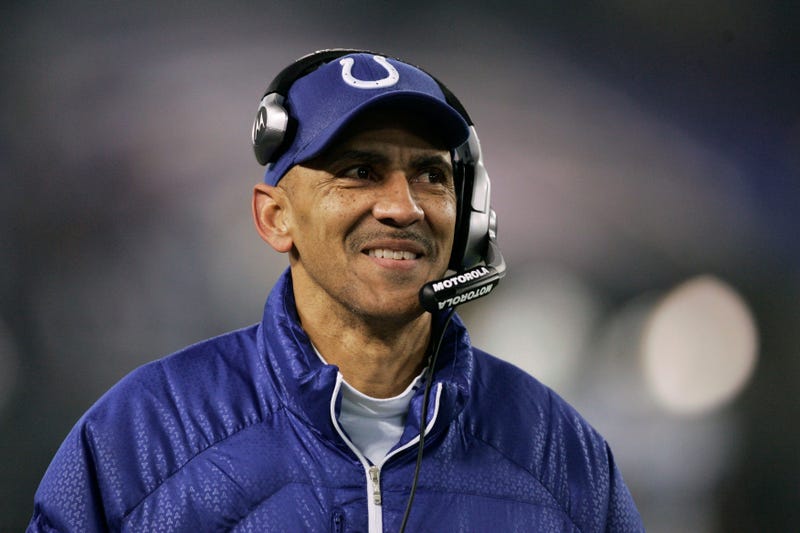
Tony Dungy is one of the most respected voices in the NFL. He won a Super Bowl as a player with the Pittsburgh Steelers, he won a Super Bowl as a coach with the Indianapolis Colts, and he’s a member of the Pro Football Hall of Fame.
But there was a time, he says, when the color of his skin impacted his coaching career.
“I think it was an impediment, yeah, I do,” Dungy said on The Zach Gelb Show. “I had interviews with owners who asked me who my staff was going to be and what my players would look like. And I had an owner tell me, ‘I don’t know if we’re ready for that yet’ when I said Tyrone Willingham is going to be my offensive coordinator because he’s the best offensive coach I know and he’s a good friend of mine and we think the same way.”
Willingham, of course, is African-American. He served as head coach at Stanford, Notre Dame, and Washington.
Still, it seems at least one NFL team was not comfortable with having an African-American head coach and an African-American offensive coordinator.
“You could tell they were not ready for that,” Dungy said. “I said, ‘I appreciate knowing that. I’ll try to go back and win and do the best I can do, and I think I’ll deliver a winner when I come.’”
Dungy, 64, did not support a since-tabled proposal that would have given teams draft-based incentives to hire minority head coaches and general managers.
NFL owners, however, did vote to expand the Rooney Rule, which now requires teams to interview at least two minority candidates from outside their organization for head-coaching jobs and at least one minority candidate from outside their organization for any coordinator job. Teams were previously required to interview only one minority candidate for a head-coaching job and none for a coordinator job.
“Now I had other owners who didn’t hire me for other reasons,” Dungy clarified, “but I do know that it has impacted people. I’ve talked to owners about coaches and asked them what they’re looking for. You just get a sense that, ‘Well, I am looking for the best person. I don’t know if that’s the best person. I’ll give it a shot. I’ll give it a look.’ But you could tell they’re maybe not looking for the absolute best person.”
